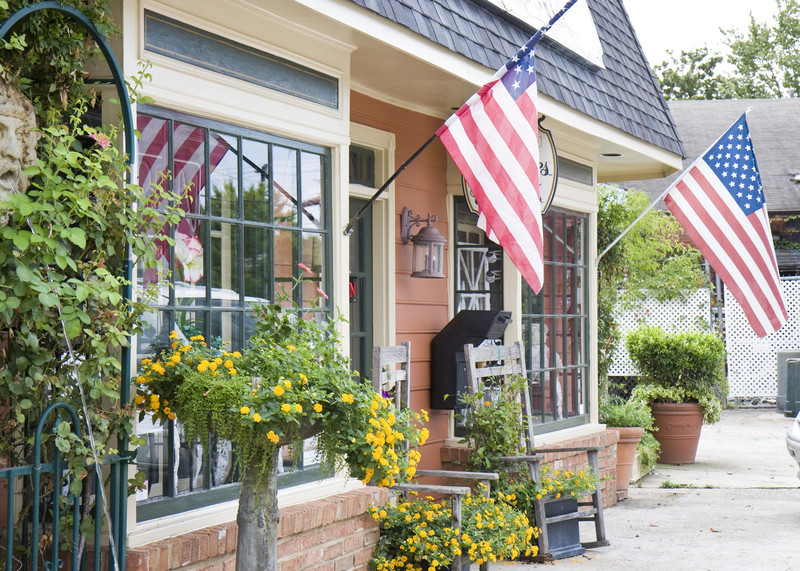Converting a House to a Business Property
 Are you thinking about converting a house to a business property? House conversions are fairly common and are often successful for small businesses. Before moving ahead with your own house conversion project, be sure to investigate the zoning and building issues that pertain to the residential property you are considering.
Are you thinking about converting a house to a business property? House conversions are fairly common and are often successful for small businesses. Before moving ahead with your own house conversion project, be sure to investigate the zoning and building issues that pertain to the residential property you are considering.
Converting a house
Houses are frequently converted into business occupancies for small companies, such as professional offices, retail shops, and services. There are several reasons for this:
- Houses are familiar and are often a lower-cost alternative to office buildings & retail spaces.
- Houses are often available in heavily-trafficked downtown and main street locations.
- Busy locations are good for businesses but are often not suitable or attractive to families.
- Business owners can build equity by purchasing a house and can also live there if desired.
- Houses are often more charming, light-filled, and unique than the other alternatives.
- Small businesses can often operate in small spaces with many rooms & lower ceiling heights.
New life for old houses
The conversion of houses to commercial use brings new life to old houses and neighborhoods.
Often, there are homes in downtown business districts or on busy main streets that are suitable for use as a business location. Older houses that have “good bones” and character can be very attractive to small business owners. Communities also prefer to maintain older buildings when possible, rather than seeing them torn down. Converting a house to business use will preserve the older, historic structure and give it new purpose and life while adding jobs and tax revenue to the local area.
Frequently, an old home has a history that can be incorporated into the new business. For instance, an older home will often work well for a small professional office, such as a realtor’s office, an accounting firm, or an attorney’s office. The character and history of the building may be very familiar and can set clients at ease. Clients may appreciate that the building was saved and repurposed in a way that is compatible with the business.
Considerations for converting a house
For start-up businesses that want to minimize their risk, converting a house to business use may be the perfect solution. Living and working in the same building is another possibility that could also prove to be economical and convenient.
However, converting a house into a business property can be more complicated than you may expect. You will want to work with an architect who can help with investigating and addressing the zoning, design, and construction issues.
Your architect will check with the municipality in which the house is located for any issues. They will design the changes necessary to make the house work for your business. Local building and zoning officials will determine if the property is zoned for commercial use and if the building is safe to use as an office, shop, or service location.
Check the zoning
The first thing you want to do is to check the property’s zoning, which is governed by a zoning ordinance. Zoning ordinances protect people and property from harm that may be caused by incompatible uses.
Special Case: Home Office
If you are simply planning to convert a spare room in your residence to an office, that may be okay. Will you be seeing clients or receiving regular deliveries at your home office? If additional traffic is generated by your business, you may receive complaints from neighbors. Play it safe – check with your town’s zoning officials before you convert a room in your home for your business.
Let’s assume instead, that you are thinking of purchasing a house to remodel for your small business. Businesses are considered commercial uses and need to be located within the commercial zone of most towns. Is the house you are considering located within a commercial zone? If you want to convert a house within a different district, you may run into problems – check with the zoning officials prior to purchasing anything.
The zoning ordinance will govern things like lot coverage, the size and bulk of the building, proximity to the property lines, and adjacency to dissimilar uses. You may be able to do an addition, for instance, or it may not be allowed because of lot coverage calculations. The zoning ordinance will also offer guidelines for shielding unattractive elements from neighbors, such as bright exterior lights, mechanical systems, and trash cans. Zoning ordinances provide guidelines for parking as well. It will tell you how many parking spaces are required and how much of the land can be covered with impervious paving.
Once you’ve determined that the property is zoned for your desired use, check the building code.
Check the building code
Commercial building codes are primarily focused on accessibility, fire safety, and structural adequacy. These are all aspects for which your architect can evaluate and provide advice.
He or she will consider the adequacy of electrical, mechanical, and plumbing systems. Depending on the municipality, you may need to add a sprinkler and alarm system. If you’re planning on installing heavy equipment or files, the structure may need to be strengthened.
Any accessibility issues will need to be addressed. Handicapped parking space(s), access to the building from the parking lot, and access within the building is required. The necessary physical modifications to the house may include ramps, wider doorways, restrooms, signage, and emergency notification systems.
Do your homework
If you are thinking about converting a house to a business property, start by hiring an architect who can walk you through the building and zoning considerations. House conversions are fairly common and are often successful for small companies. Do your homework on building and zoning before purchasing a house – you’ll improve the likelihood that your conversion project is a success.



